
Gwangalli Beach: The Vibrant Heart of Busan
Gwangalli Beach is a stunning coastal gem located in Busan, South Korea. Known for its soft, golden sands and clear, inviting waters, this neighborhood offers a perfect blend of natural beauty and urban charm. By day, visitors can enjoy a leisurely swim, sunbathe, or partake in numerous water sports. The beach is also lined with cafes and restaurants, where one can savor fresh seafood while enjoying panoramic ocean views. As evening falls, Gwangalli Beach transforms into a lively nightlife hub. The beachside promenade lights up with a dazzling array of neon signs and street performers, creating a festive atmosphere. The highlight is undoubtedly the spectacular sight of the Gwangan Bridge, illuminated beautifully against the night sky. The bridge's light show, synchronized with music, is a must-see and provides a romantic backdrop for an evening stroll. Beyond the beach, the neighborhood boasts an array of attractions. Art lovers will appreciate the nearby galleries and cultural centers. For those seeking retail therapy, there are numerous shops offering everything from local handicrafts to the latest fashion trends. Gwangalli Beach is also well-connected, making it easy to explore other parts of Busan, including the famous Haeundae Beach and the vibrant Jagalchi Fish Market.
Local tips in Gwangalli Beach
- Visit in the late afternoon to enjoy both the beach and the evening light show on Gwangan Bridge.
- Try the local seafood at beachside restaurants for a true taste of Busan.
- Bring a light jacket as it can get breezy in the evening, even during summer.
- Check the local calendar for festivals and events that often take place on the beach.
- Use public transportation for easy access; the nearest subway station is Geumryeonsan, a short walk from the beach.
Gwangalli Beach: The Vibrant Heart of Busan
Gwangalli Beach is a stunning coastal gem located in Busan, South Korea. Known for its soft, golden sands and clear, inviting waters, this neighborhood offers a perfect blend of natural beauty and urban charm. By day, visitors can enjoy a leisurely swim, sunbathe, or partake in numerous water sports. The beach is also lined with cafes and restaurants, where one can savor fresh seafood while enjoying panoramic ocean views. As evening falls, Gwangalli Beach transforms into a lively nightlife hub. The beachside promenade lights up with a dazzling array of neon signs and street performers, creating a festive atmosphere. The highlight is undoubtedly the spectacular sight of the Gwangan Bridge, illuminated beautifully against the night sky. The bridge's light show, synchronized with music, is a must-see and provides a romantic backdrop for an evening stroll. Beyond the beach, the neighborhood boasts an array of attractions. Art lovers will appreciate the nearby galleries and cultural centers. For those seeking retail therapy, there are numerous shops offering everything from local handicrafts to the latest fashion trends. Gwangalli Beach is also well-connected, making it easy to explore other parts of Busan, including the famous Haeundae Beach and the vibrant Jagalchi Fish Market.
Iconic landmarks you can’t miss
Millak Waterside Park
Experience the beauty of Busan at Millak Waterside Park, where lush landscapes meet stunning coastal views and vibrant local culture.
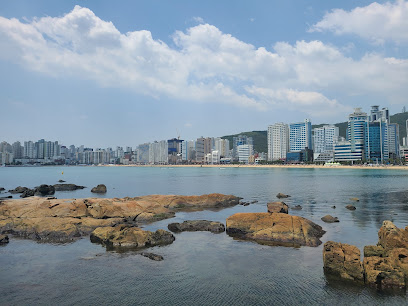
F1963
Discover the dynamic cultural hub of F1963 in Busan, where contemporary art meets community engagement in a stunning urban setting.
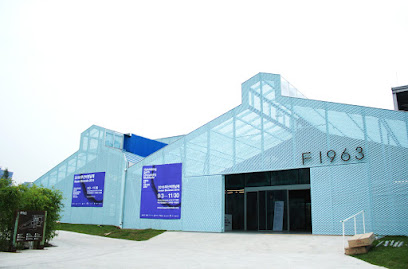
Gwangan Beach Park
Experience the tranquil beauty of Gwangan Beach Park, a coastal gem in Busan perfect for relaxation, adventure, and unforgettable sunset views.
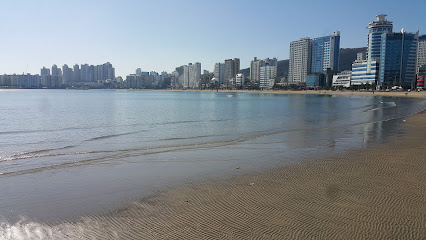
Gwangalli Beach
Discover the beauty of Gwangalli Beach in Busan, where sun, sea, and culture come together for an unforgettable seaside experience.
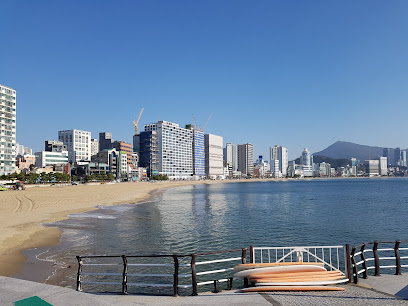
Gwangan Bridge
Discover the breathtaking views and vibrant atmosphere of Gwangan Bridge, an architectural masterpiece in Busan, South Korea.
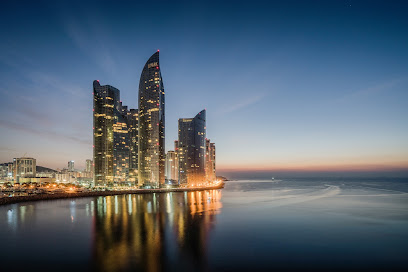
Suyeong Historical Park
Discover tranquility and history at Suyeong Historical Park, a serene gem in Busan where nature meets Korea's rich cultural heritage.
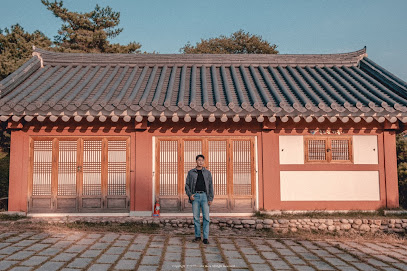
Gwangan Blue Moon
Discover the charm of Busan with a stay at Gwangan Blue Moon, a cozy motel near stunning beaches and vibrant local attractions.
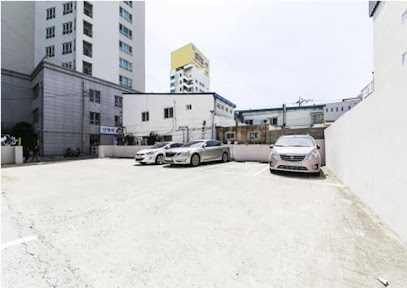
Gwangali Beach
Explore Gwangali Beach in Busan, a stunning coastal paradise known for its scenic views, vibrant nightlife, and rich cultural experiences.
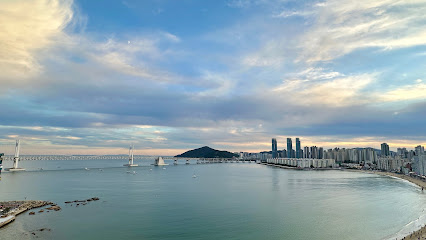
Orange Bada
Explore the unique offerings of Orange Bada in Busan, where local craftsmanship meets contemporary design in a charming home goods store.
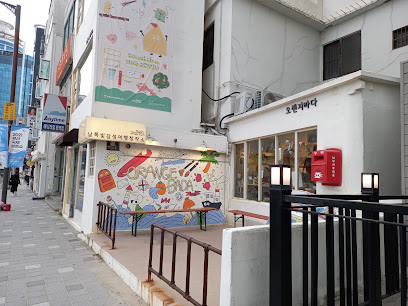
Gwangalli Tourist Information Center
Discover Busan's vibrant culture and attractions at the Gwangalli Tourist Information Center, your essential guide for an unforgettable travel experience.
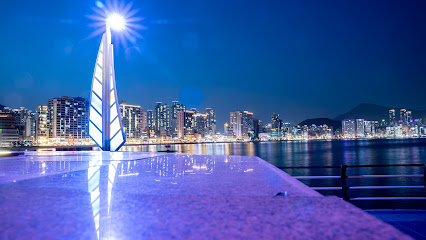
Gwanganli Beach
Experience the beauty and vibrant atmosphere of Gwanganli Beach in Busan, a perfect blend of relaxation and exhilarating beach activities.
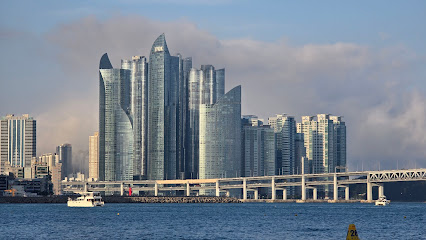
Gwangali Beach View Point
Experience breathtaking views and vibrant beach culture at Gwangali Beach View Point, the perfect destination for relaxation and local cuisine in Busan.
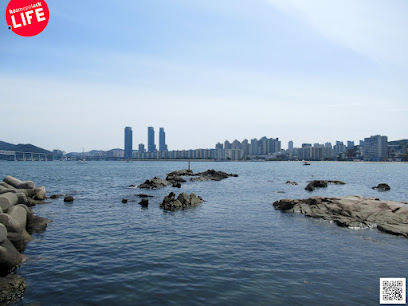
Unmissable attractions to see
Millak Waterside Park
Experience the breathtaking views and serene ambiance of Millak Waterside Park in Busan, a perfect blend of nature and urban beauty.
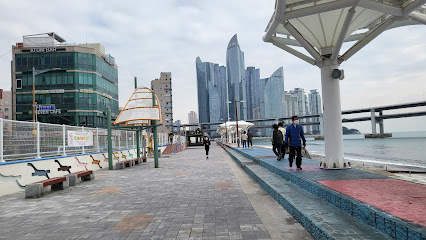
F1963
Experience the vibrant art and culture of Busan at F1963, a transformed cultural center showcasing innovative exhibits and inspiring local creativity.
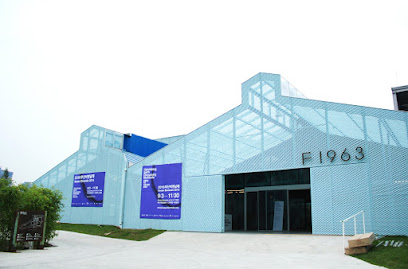
Gwangan Beach Park
Explore the picturesque Gwangan Beach Park in Busan, where sandy shores meet vibrant local culture and breathtaking ocean views await every visitor.
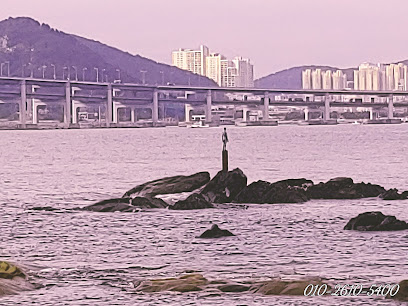
APEC Naru Park
Experience the tranquility of APEC Naru Park in Busan, a beautiful riverside escape with stunning views and lush landscapes.
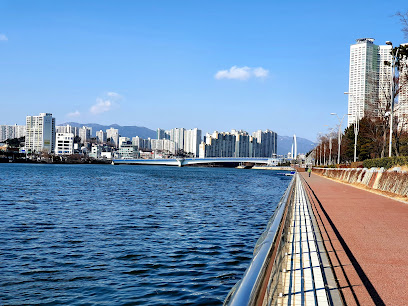
Namcheon Seaside Park
Experience the beauty of nature and coastal charm at Namcheon Seaside Park, a serene retreat in Busan perfect for relaxation and adventure.
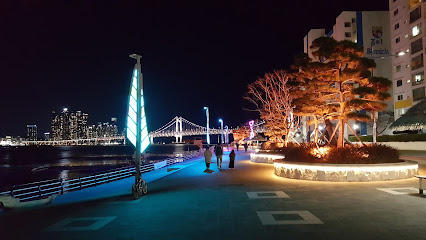
Gwangan Bridge
Explore the stunning Gwangan Bridge in Busan, where breathtaking views and architectural beauty await you on your travel adventure.
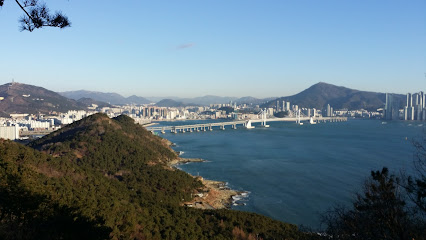
Suyeong Historical Park
Explore Suyeong Historical Park in Busan, a serene blend of nature and history, perfect for relaxation and discovery.
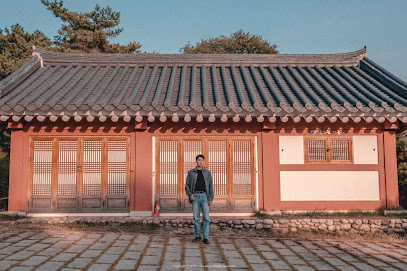
Okryeonseonwon Temple
Explore the serene Okryeonseonwon Temple in Busan, a hidden gem of tranquility and spiritual heritage amidst the bustling city.
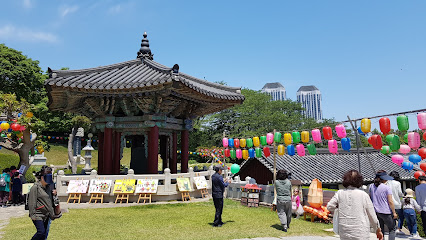
Solbat Art Village
Experience the artistic spirit of Solbat Art Village in Busan, where creativity meets culture in a vibrant coastal setting.
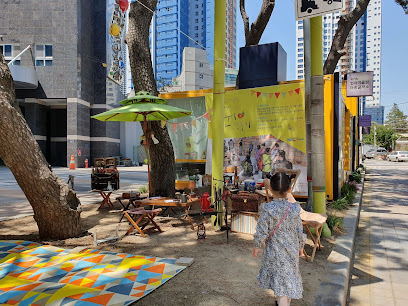
Gwanganli Beach
Experience the breathtaking beauty and vibrant atmosphere of Gwanganli Beach in Busan, South Korea, where relaxation meets adventure.
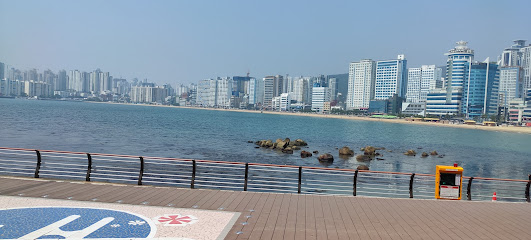
SUYEONG RIVERSIDE DECK
Discover the serene Suyeong Riverside Deck in Busan, a beautiful blend of nature and urban charm ideal for relaxation and stunning views.
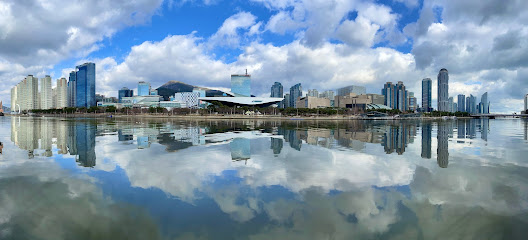
Essential places to dine
Guess WHO Restaurant
Discover Guess WHO Restaurant: A premium Western dining experience with stunning coastal views in Busan.
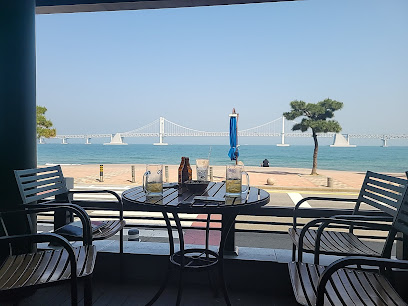
Gaemijib Gwangalli
Experience Busan's culinary delight at Gaemijib Gwangalli - where long legged octopus meets stunning beach views.
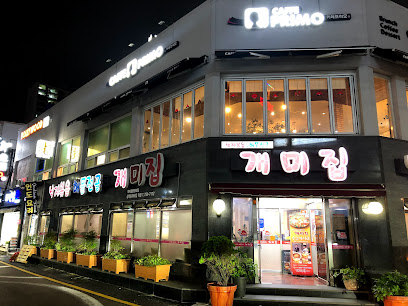
The 8ble
Experience authentic Italian cuisine at The 8ble in Busan, where delicious flavors meet stunning coastal views.
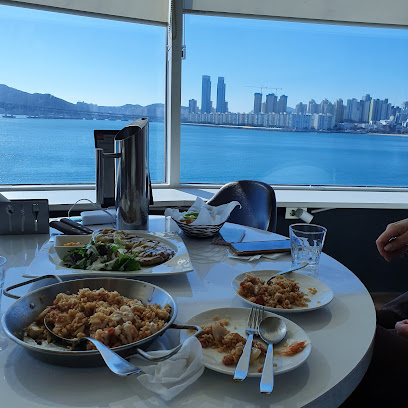
퍼지네이블 민락점
Experience the lively atmosphere at Fuzzy Navel - where delicious cocktails meet authentic Mexican cuisine in the heart of Busan.
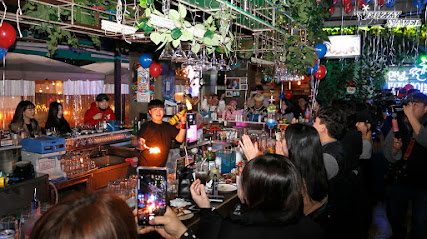
CLAM Gwangalli
Discover the taste of Spain at CLAM Gwangalli - where authentic cuisine meets breathtaking beach views.
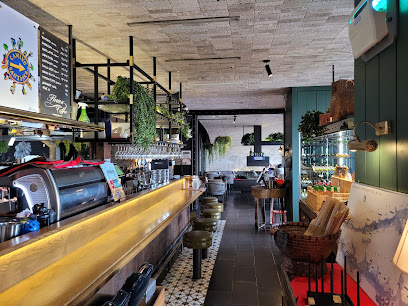
La Bella Cita
Discover authentic Italian flavors at La Bella Cita in Busan's vibrant Suyeong-gu district - where every dish tells a story.
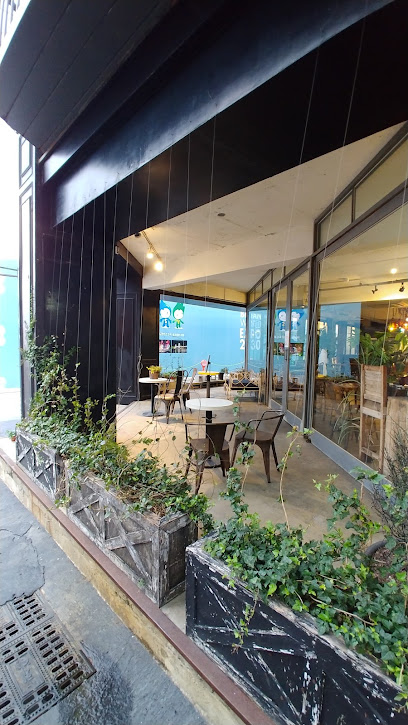
Bollywood Hookah Lounge & Indian Food
Experience the vibrant flavors of India at Bollywood Hookah Lounge & Indian Food in Busan, where exquisite cuisine meets a lively hookah lounge ambiance.
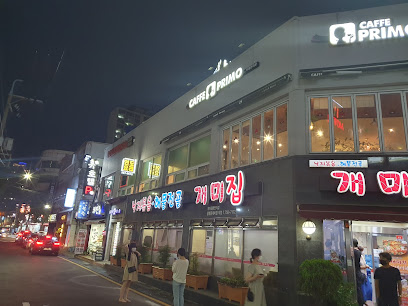
Seorae Griled Skirt Meat Gwangalli Branch
Indulge in exquisite Korean BBQ at Seorae Grilled Skirt Meat in Busan - where taste meets tradition!
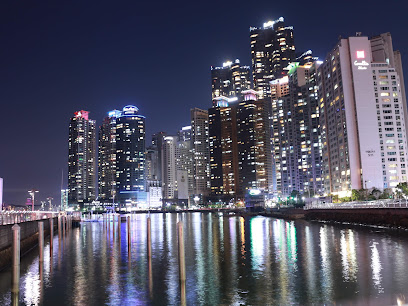
trattoria dante
Experience authentic Italian flavors at Trattoria Dante in Suyeong-gu, Busan - where every dish tells a story.
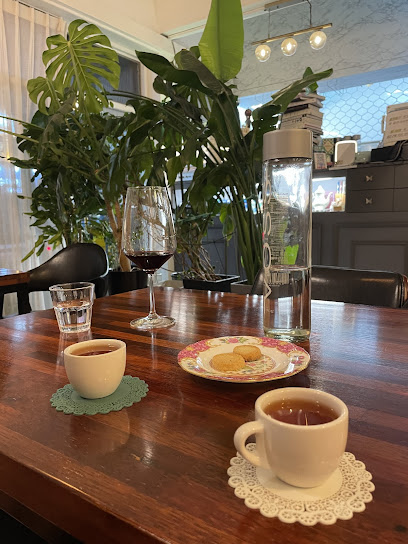
EL CARNITAS TACO & GRILL Gwangalli
Savor authentic Mexican cuisine at El Carnitas Taco & Grill in Gwangalli - where flavor meets fun by the beach.
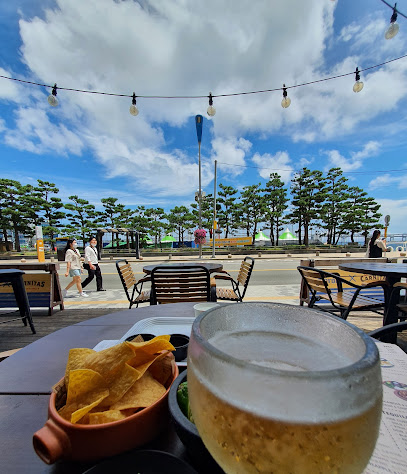
Markets, malls and hidden boutiques
Love is Giving
Explore Love is Giving, a charming home goods store in Busan, offering unique decor and lifestyle products that reflect local artistry and creativity.
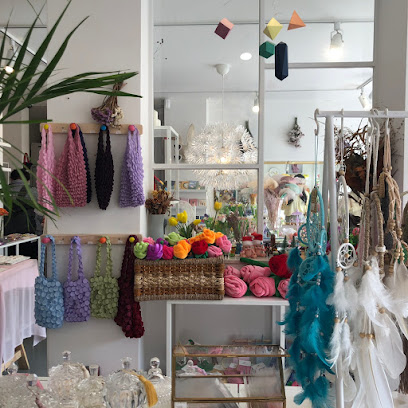
Orange Bada
Explore Orange Bada, Busan's hidden gem for unique home goods and souvenirs that celebrate Korean culture.
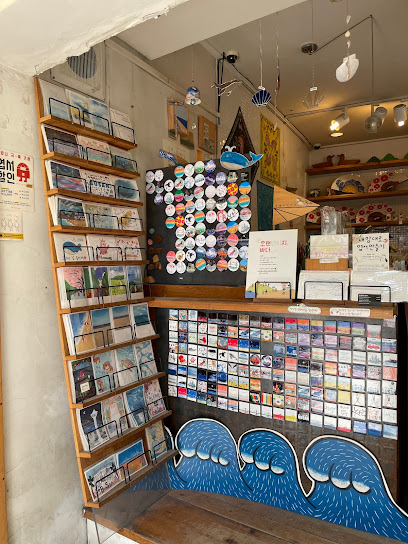
분홍이네
Explore the vibrant world of unique souvenirs at 분홍이네, a hidden gem in Busan's Suyeong-gu, offering local crafts and delightful shopping experiences.
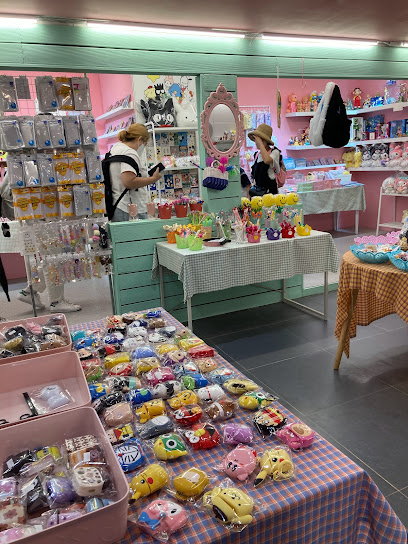
코지모지
Discover a world of unique gifts at 코지모지, where local craftsmanship and creativity meet in the heart of Busan.
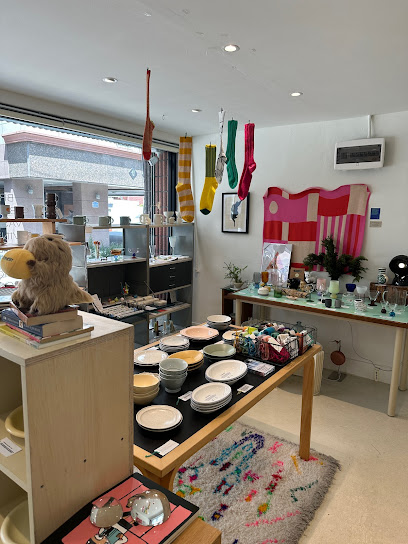
COSYMOSY
Explore the charm of Busan at COSYMOSY, a gift shop filled with unique handcrafted treasures and local artistry.
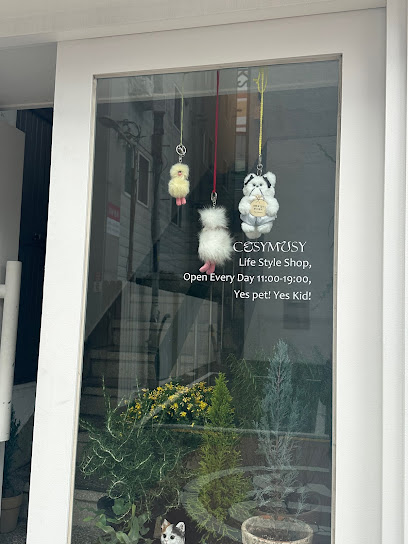
Love Actually
Explore Love Actually, Busan's charming souvenir store, and discover unique treasures that celebrate the city's rich culture and artistry.
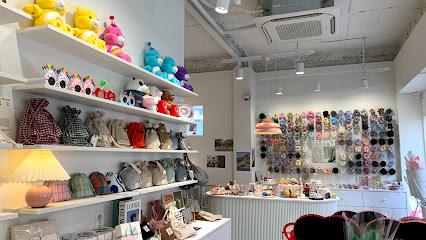
여가거가광안리
Explore the enchanting 여가거가광안리 in Busan for unique souvenirs and local treasures that capture the essence of your travels.
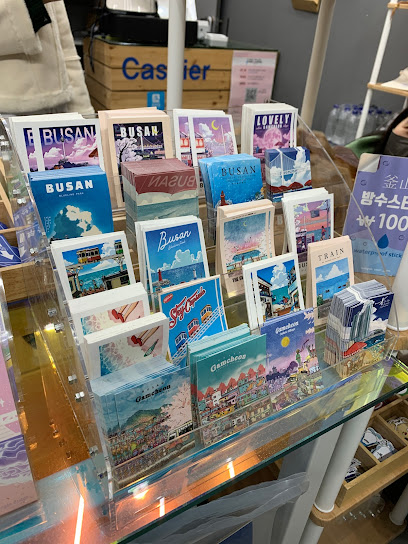
이핀
Explore the vibrant gift shop 이핀 in Suyeong-gu, Busan, offering unique souvenirs and local treasures that capture the spirit of Korean culture.
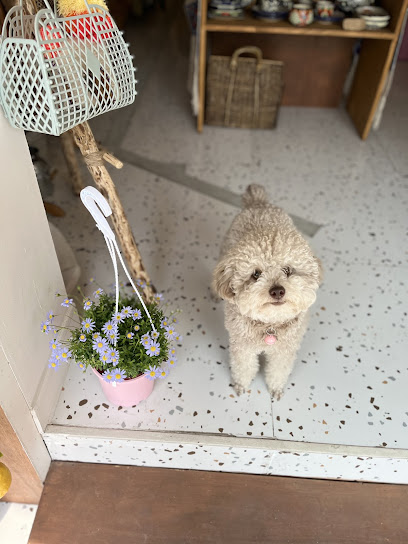
Love is Giving Heart Bear
Discover unique gifts and heartfelt souvenirs at Love is Giving Heart Bear, a charming shop in Busan's Suyeong-gu district.
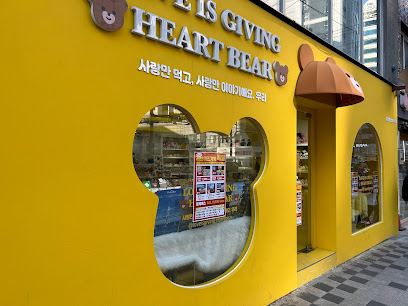
KALON
Explore KALON in Busan for unique gifts and local crafts that embody the spirit of South Korean culture.

Essential bars & hidden hideouts
Thursday Party, Gwangalli
Experience the vibrant nightlife of Busan at Thursday Party, where drinks, music, and stunning beach views create unforgettable memories.
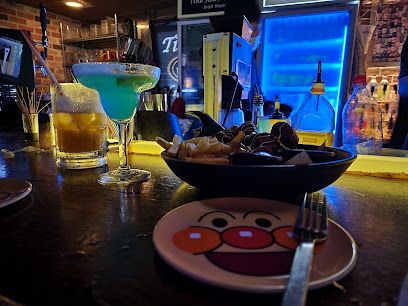
Sam Ryan's
Experience the vibrant nightlife of Busan at Sam Ryan's, where great drinks, live music, and a welcoming atmosphere come together.
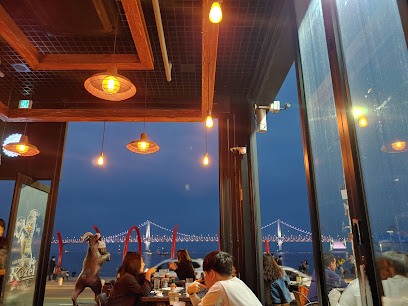
Happy Monk
Discover the lively spirit of Busan at Happy Monk, a bar offering a vast selection of drinks and a vibrant atmosphere perfect for nightlife enthusiasts.
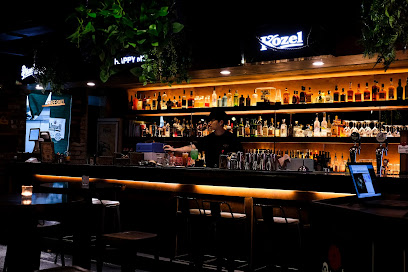
HQ Gwangan
Experience the vibrant nightlife of Busan at HQ Gwangan, a trendy bar with live music and a captivating atmosphere.
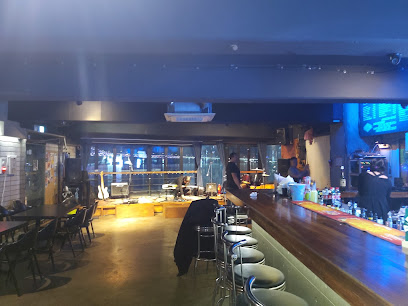
FUZZY NAVEL Gwangan
Discover the vibrant nightlife at Fuzzy Navel Gwangan, where delicious cocktails and stunning seaside views await in Busan's bustling bar scene.
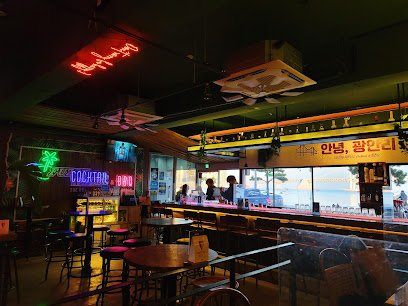
Bar di.lan
Discover the charm of Busan's wine scene at Bar di.lan, where exceptional wines meet a cozy atmosphere for an unforgettable experience.
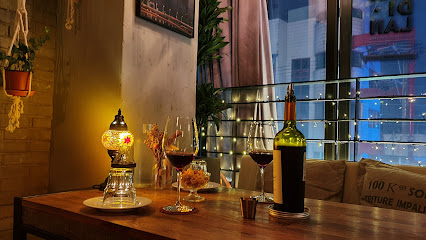
무지개맥주(Rainbow Beer) 광안리해수욕장점
Discover the vibrant nightlife of Busan at 무지개맥주, a premier pub located by Gwanganli Beach, offering craft beers and stunning beach views.
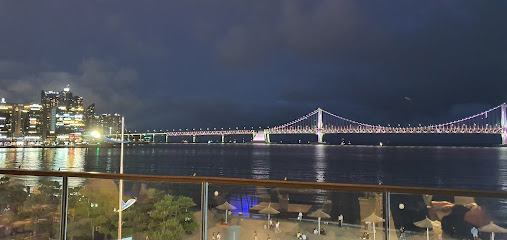
Tap Security Place
Experience Busan's vibrant nightlife at Tap Security Place, where great drinks, lively atmosphere, and unforgettable moments await you.
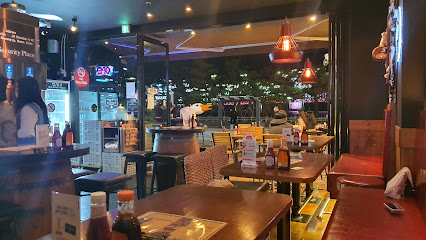
Busan wine bar Gwanganli bar lounge vanguard
Experience the vibrant atmosphere of Busan's Vanguard Wine Bar, where exquisite Italian cuisine meets a fine selection of wines in a cozy lounge setting.
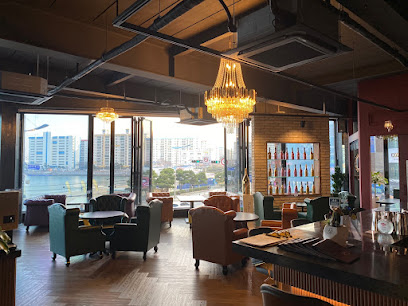
THIS WAY
Experience Busan's vibrant nightlife at THIS WAY, a charming bar with exceptional drinks and a cozy atmosphere perfect for every occasion.
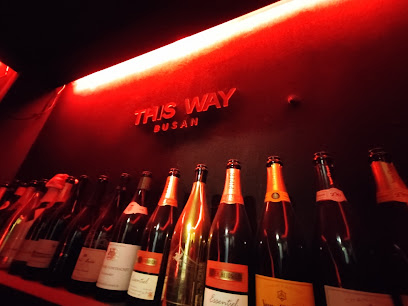
Local Phrases
-
- Hello안녕하세요
[an-nyeong-ha-se-yo] - Goodbye안녕히 가세요
[an-nyeong-hi ga-se-yo] - Yes네
[ne] - No아니요
[a-ni-yo] - Please/You're welcome부탁합니다
[bu-tak-ham-ni-da] - Thank you감사합니다
[gam-sa-ham-ni-da] - Excuse me/Sorry죄송합니다
[joe-song-ham-ni-da] - How are you?어떻게 지내세요?
[eo-tteo-ke ji-nae-se-yo] - Fine. And you?잘 지내고 있어요. 그리고 당신은?
[jal ji-nae-go i-seo-yo. geu-ri-go dang-sin-eun?] - Do you speak English?영어 할 수 있어요?
[yeong-eo hal su i-sseo-yo?] - I don't understand이해하지 못해요
[i-hae-ha-ji mo-tae-yo]
- Hello안녕하세요
-
- I'd like to see the menu, please메뉴를 보여주세요
[me-nyu-reul bo-yeo-ju-se-yo] - I don't eat meat고기를 안 먹어요
[go-gi-reul an meo-geo-yo] - Cheers!건배!
[geon-bae!] - I would like to pay, please계산할게요
[gye-san-hal-ge-yo]
- I'd like to see the menu, please메뉴를 보여주세요
-
- Help!도와주세요!
[do-wa-ju-se-yo!] - Go away!가세요!
[ga-se-yo!] - Call the Police!경찰을 불러주세요!
[gyeong-chal-eul bul-leo-ju-se-yo!] - Call a doctor!의사를 불러주세요!
[ui-sa-reul bul-leo-ju-se-yo!] - I'm lost길을 잃었어요
[gil-eul ilh-eoss-eo-yo] - I'm ill아파요
[a-pa-yo]
- Help!도와주세요!
-
- I'd like to buy...구매하고 싶어요
[gu-mae-ha-go ship-eo-yo] - I'm just looking둘러보고 있어요
[du-reo-bo-go i-seo-yo] - How much is it?얼마에요?
[eol-ma-e-yo?] - That's too expensive너무 비싸요
[neo-mu bi-ssa-yo] - Can you lower the price?가격을 낮출 수 있어요?
[ga-geuk-eul nat-chul su i-sseo-yo?]
- I'd like to buy...구매하고 싶어요
-
- What time is it?몇 시에요?
[myeot-si-e-yo?] - It's one o'clock한 시에
[han si-e] - Half past (10)10시 반
[sip-si ban] - Morning아침
[a-chim] - Afternoon오후
[o-hu] - Evening저녁
[jeo-nyeok] - Yesterday어제
[eo-je] - Today오늘
[o-neul] - Tomorrow내일
[nae-il] - 1하나
[ha-na] - 2둘
[dul] - 3셋
[set] - 4넷
[net] - 5다섯
[da-seot] - 6여섯
[yeo-seot] - 7일곱
[il-gop] - 8여덟
[yeo-deol] - 9아홉
[a-hop] - 10열
[yeol]
- What time is it?몇 시에요?
-
- Where's a/the...?...이 어디에 있어요?
[...i eo-di-e i-sseo-yo?] - What's the address?주소가 뭐에요?
[ju-so-ga mwo-e-yo?] - Can you show me (on the map)?지도로 보여주세요
[ji-do-ro bo-yeo-ju-se-yo] - When's the next (bus)?다음 (버스) 언제에요?
[da-eum (beo-seu) eon-je-e-yo?] - A ticket (to ....)(...로) 표 하나 주세요
[(...ro) pyo ha-na ju-se-yo]
- Where's a/the...?...이 어디에 있어요?
History of Gwangalli Beach
-
Gwangalli Beach has long been a key location in Busan's maritime history. During the late 19th century, the beach area became integral to trade and fishing activities, reflecting Busan's role as a vital port city. The proximity to the sea facilitated the movement of goods and cultural exchanges, cementing Gwangalli's place in the regional economy.
-
The period of Japanese occupation from 1910 to 1945 saw significant urban development in Busan, including Gwangalli Beach. The Japanese colonial government invested in infrastructure, transforming the area into a popular leisure destination. This development laid the groundwork for the modern beach culture that Gwangalli is known for today.
-
Following the Korean War (1950-1953), Gwangalli Beach underwent reconstruction and urban renewal. The beach became a symbol of Busan's resilience and growth. As South Korea rapidly industrialized, Gwangalli evolved into a vibrant area that attracted both locals and tourists, featuring beachside cafes and cultural festivals.
-
In recent decades, Gwangalli Beach has become known for its cultural events, such as the Busan Fireworks Festival and the Busan International Film Festival. These events highlight the beach's role as a cultural hub, showcasing Busan's artistic talents and attracting visitors from around the world.
-
Today, Gwangalli Beach is a bustling area that reflects the modern lifestyle of Busan. With its scenic views of the Gwangan Bridge and a lively atmosphere, the beach attracts a diverse crowd. The ongoing development of cafes, restaurants, and entertainment venues has further solidified Gwangalli's status as a premier tourist destination, while retaining its historical significance.
Gwangalli Beach Essentials
-
Gwangalli Beach is easily accessible from various neighborhoods in Busan. If you're coming from Haeundae, take Subway Line 2 towards Seomyeon and transfer to Line 1 at Seomyeon Station, heading towards Nopo. Get off at Gwangan Station, which is just a short walk from the beach. From Busan Station, you can take the Busan-Gwangalli Beach direct bus, or take Subway Line 1 to Nopo and then transfer to Line 2. Taxis are also widely available and relatively affordable.
-
Gwangalli Beach is pedestrian-friendly, making it easy to explore on foot. The area is well-served by public transport, including buses and the subway. Bicycles can be rented from local shops or designated rental stations. The beach promenade is popular for cycling and walking. Taxis are readily available for longer distances or if you're tired after a long day at the beach.
-
Gwangalli Beach is generally safe for tourists, but it's wise to stay vigilant. Avoid secluded areas at night and keep valuables secure. While violent crime is rare, petty crimes like pickpocketing can occur in crowded settings. It's best to stay clear of poorly lit areas and to refrain from displaying expensive items openly.
-
In case of an emergency, dial 112 for police assistance or 119 for fire and medical emergencies. The nearest hospital is Busan National University Hospital, located a short taxi ride away. Ensure you have travel insurance that covers health emergencies. Pharmacies are also available in the area for minor health issues.
-
Fashion: Do wear comfortable beach attire, but avoid overly revealing clothing when away from the beach area. Religion: Do respect local customs, especially near temples and religious sites. Public Transport: Do give up your seat for the elderly and keep noise levels low. Don't eat or drink on the subway. Greetings: Do greet locals with a smile and a slight bow. Eating & Drinking: Do try local seafood delicacies and enjoy street food. Don’t waste food or leave a mess.
-
To experience Gwangalli Beach like a local, visit the nearby cafes and restaurants to savor fresh seafood dishes. Join locals for evening walks along the beach promenade, especially during sunset. Attend one of the beach festivals held during summer for a taste of local culture. Don’t miss the view of the Gwangan Bridge lit up at night—it’s a local favorite.
Nearby Cities to Gwangalli Beach
-
Things To Do in Ulsan
-
Things To Do in Gyeongju
-
Things To Do in Daegu
-
Things To Do in Pohang
-
Things To Do in Suncheon
-
Things To Do in Andong
-
Things To Do in Jeonju
-
Things To Do in Daejeon
-
Things To Do in Gwangju
-
Things To Do in Fukuoka
-
Things To Do in Mokpo
-
Things To Do in Jeju City
-
Things To Do in Suwon
-
Things To Do in Hiroshima
-
Things To Do in Seoul








